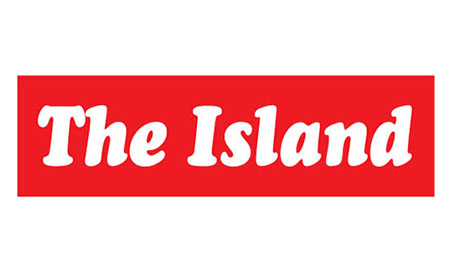Business
Constant ‘monetary financing’ had little backing from fiscal side, says Central Bank

by Sanath Nanayakkare
The majority of external obligations in the recent past were financed by sources like the Central Bank of Sri Lanka or through monetary financing, but fiscal consolidation through revenue enhancement as well as expenditure rationalization deemed necessary under such circumstances were hard to come by, R.A.A. Jayalath , Assistant Governor of the Central Bank of Sri Lanka said recently.
He said so while addressing a high level seminar held on the topic on “Confronting the Current Foreign Exchange Crisis in Sri Lanka: Lessons from Global Experience”.
“Thus, a significant amount of monetary financing by the Central bank has resulted in worsening inflation and exchange rate outcome”, he observed.

He went on to say: “In this environment, the tax cuts introduced in 2019-2020 with a reduction of VAT threshold was a grievous policy, in my view. Total impact of such a tax cut was over Rs. 600 billion and some put it at Rs. 800 billion. The resultant revenue drop was about 7.7% of GDP. The mainstream economic theory suggested such tax cuts would enhance money in circulation in the economy supporting growth in the medium to long term. The combination of pandemic-induced additional expenses and limited resource mobilization had widened the fiscal deficit. Tax cuts, low interest rates and high liquidity environment created higher demand for imports. In addition to that, the pandemic hit the brakes on tourism-related revenue which was the fifth largest inflow which had been normalizing after Easter Sunday attack in 2019. The pandemic related mobility restrictions around the world strengthened remittances via banking channels. However, this was short-lived as mobility increased after successful immunization programmes as a result of which the pattern of the flow of remittances changed. This was exacerbated by the fixation of exchange rate at Rs.200 levels”.
“Tourism brought USD 4.4 billion – 5.6% of GDP in 2019 – and it was reduced to 0.8% in 2020. Then the government decided to ban the import of agro-chemicals in April 2021 for health reasons and to promote eco-friendly sustainable agriculture. Although the transition towards organic farming seemed like an environmentally friendly sustainable step, the sudden shift was like a time bomb waiting to explode. Whatever the rational, the sudden transmission was extremely problematic due to lack of organic farming infrastructure, dependence on imported agro chemicals and lack of access to modern agricultural techniques. …….This disrupted the economy’s self-sufficiency in rice production requiring rice imports using scarce foreign exchange reserves. The nation’s external economic performance deteriorated and the current account deficit increased from 1.14 billion in January 2022 from 0.13 in January 2021.”
“When you look at Sri Lanka’s current crisis, we can’t forget the legacy the country has been carrying. Since post-independence, Sri Lanka has been a twin-deficit country except for a few years. The number of times the country has sought assistance from the IMF in its post-independence history shows the frequency of BOP challenges it faced. Today we are seeking the global lending agency’s support for the 17th time.”
“The country’s trade account was continuously in deficit. Import expenditure was almost double the exports. In the current account, it showed some relief mainly because of migrant worker remittances. But that was insufficient to cover the twin deficit. The majority of the country’s foreign exchange inflows didn’t come via non-debt creating flows like FDIs, but through further borrowings. On top of this fiscal balance or the government budget was continuously in deficit. And it was increasing due to ever-increasing commitments of the government sector. Thus the country’s primary account balance – the government budget before deduction of debt servicing expenses – was in deficit except for a few years.”
“Government revenue as a percentage of GDP was constantly on the decline since 1980s except in 2015, and 2016. Tax revenue was declining until 2015, and showed some increase in 2017/2018. But the budget deficit was significant. In 2019, it was around 9.6% and increased to 11.1% in 2020 and 2021, so both fiscal and Balance of Payments ( BOP) issues were at the heart of Sri Lanka’s macroeconomic performance constantly. In addition, heavy and continuous borrowings by the government to bridge the fiscal deficit over the years, has led to monetary policy and exchange rate management having limited effectiveness in managing the fallout of funding the fiscal gap. Subsequent to the global financial crisis and the presence of low interest rates in the developed market, Sri Lanka shifted its strategy significantly towards foreign market borrowings, exposing the country towards global credit cycles. So although we witnessed rapid economic growth, majority of them were coming from borrowed funds and at the same time they were invested mostly in non-tradable sectors or slow-revenue generating sectors.”
“This was reflected in the trade balance which was not sound and was deteriorating. The other factor that led to the rapid shift in our debt composition was when we moved to commercial borrowings, particularly after we lost access to concessional borrowings. Since we graduated to middle-income country status in early 2000, most of our borrowings were commercial borrowings. We didn’t have access to low-cost borrowings from multilateral agencies. And as concessional loans declined, the economy increasingly moved towards commercial loans mostly by way of international sovereign bonds (ISBs) and other bank and overseas borrowings. While the domestic /public debt level remained mostly stable, foreign debt became primarily the force driving the Sri Lankan economy.”
“Foreign debt to GDP ratio increased from 30% in 2014 to above 50% in 2020. Although Sri Lanka’s foreign debt to GDP ratio has witnessed a significant reduction over the past two decades, the change in the composition of high level of external debt has made the economy more vulnerable to a currency crisis in the past few years. Consequently, in 2021, the economy had net repayments to foreign creditors; therefore, the entire budget deficit was financed by domestic financing. It was kind of domestication of external obligations,” the Assistant Governor said.
Business
AHK Sri Lanka champions first-ever Sri Lankan delegation at Drupa 2024

The Delegation of German Industry and Commerce in Sri Lanka (AHK Sri Lanka) proudly facilitated the first-ever Sri Lankan delegation’s participation at Drupa 2024, the world’s largest trade fair for the printing industry and technology. Held after an eight-year hiatus, Drupa 2024 was a landmark event, marking significant advancements and opportunities in the global printing industry.
AHK Sri Lanka played a pivotal role in organising and supporting the delegation, which comprised 17 members from the Sri Lanka Association for Printers (SLAP), representing eight companies from the commercial, newspaper, stationery printing, and packaging industries. This pioneering effort by AHK Sri Lanka not only showcased the diverse capabilities of Sri Lanka’s printing sector but also facilitated vital bilateral discussions with key stakeholders from the German printing industry.
Business
Unveiling Ayugiri: Browns Hotels & Resorts sets the stage for a new era in luxury Ayurveda Wellness

In a captivating reimagining of luxury wellness tourism, Browns Hotels & Resorts proudly unveiled the exquisite Ayugiri Ayurveda Wellness Resort Sigiriya. This momentous occasion, celebrated amidst a vibrant and serene grand opening on the 6th of June, heralds a new chapter in the Ayurveda wellness tourism landscape in Sri Lanka. Nestled amidst 54 acres of unspoiled natural splendour, Ayugiri features 22 exclusive suites and stands out as the only luxury Ayurveda wellness resort in the country offering plunge pools in every room, rendering it truly one-of-a-kind.
The grand opening of Ayugiri Ayurveda Wellness Resort was an enchanting event, where guests were captivated by the melodies of flutists and violinists resonating through Sigiriya’s lush landscapes. As traditional drummers and dancers infused the air with vibrant energy, Browns Hotels & Resorts’ CEO, Eksath Wijeratne, Kotaro Katsuki, Acting Ambassador for the Embassy of Japan and General Manager, Buwaneka Bandara, unveiled the resort’s new logo, marking a significant moment witnessed by distinguished guests from the French Embassy, Ayurveda and wellness enthusiasts along with officials from the Sigiriya area, LOLC Holdings and Browns Group.
“Our strategic expansion into wellness tourism with Ayugiri Ayurveda Wellness Resort Sigiriya symbolises a significant milestone for Browns Hotels & Resorts. Wellness tourism has consistently outperformed the overall tourism industry for over a decade, reflecting a growing global interest in travel that goes beyond leisure to offer rejuvenation and holistic well-being. By integrating the timeless wisdom of Ayurveda with modern luxury, we aim to set a new standard in luxury wellness tourism in Sri Lanka. Whether your goal is prevention, healing, or a deeper connection to inner harmony, Ayugiri offers a sanctuary for holistic well-being” stated Eksath Wijeratne.
Ayugiri encapsulates the essence of life, inspired by the lotus flower held by the graceful queens of the infamous Sigiriya frescoes. Just as the lotus emerges from the murky depths, untainted and serene,
Ayugiri invites guests on a journey of purity and rejuvenation, harmonised with a balance of mind, body and spirit, the essence of nature, echoes of culture and the wisdom of ancient Ayurvedic healing.
Business
HNB General Insurance recognized as Best General Bancassurance Provider in Sri Lanka 2024

HNB General Insurance, one of Sri Lanka’s leading general insurance providers, has been honored as the Best General Bancassurance Provider in Sri Lanka 2024 by the prestigious Global Banking and Finance Review – UK.
The esteemed accolade underscores HNB General Insurance’s unwavering commitment to excellence and its outstanding performance in the field of bancassurance. Through dedication and hard work, the HNB General Insurance team has continuously endeavored to deliver innovative insurance solutions, cultivate strong relationships with banking partners, and provide unparalleled service to customers nationwide. This recognition is a testament to the team’s dedication and relentless pursuit of excellence in the bancassurance business.
“We are honored to receive this prestigious award, which reflects our team’s tireless efforts and dedication to delivering value-added insurance solutions and exceptional service through our bancassurance partnerships,” said Sithumina Jayasundara, CEO of HNB General Insurance. “This recognition reaffirms our position as a trusted insurance provider in Sri Lanka and motivates us to continue striving for excellence in serving our customers and communities.”












